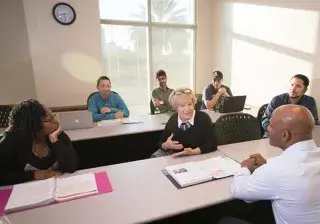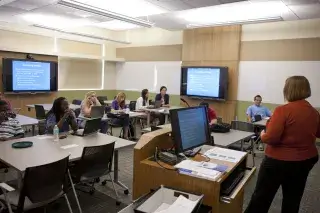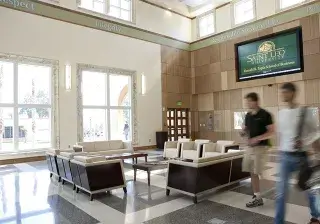

Why Earn Your Robotics and Artificial Intelligence Degree at Saint Leo University?
Saint Leo University’s Bachelor of Science in Robotics & Artificial Intelligence degree offers students a full-time degree program at the University Campus. One of the most innovative and rapidly growing areas, the fields of robotics and artificial intelligence are beginning to play an important role in many aspects of modern society, such as automation, manufacturing, the defense industry, commerce—like Amazon—and the healthcare industry to mention a few. Rapid advancements in manufacturing, technology and the opening of new markets around the globe, is creating a surge in the demand for robots and highly skilled robotics engineers, which is expected to grow well into the 21st century.
The B.S. Robotics & Artificial Intelligence degree prepares its graduates for a diverse range of careers in the robotics and automation industry. The curriculum provides depth and breadth in fundamental theory and practical applications to prepare students to design, implement, and evaluate robotics technology to solve real world problems.


